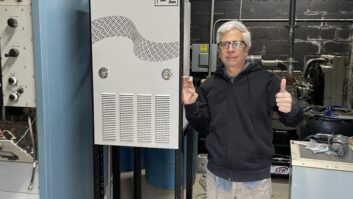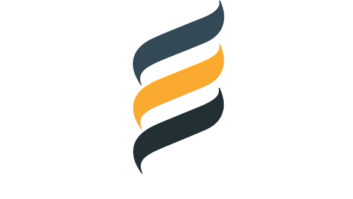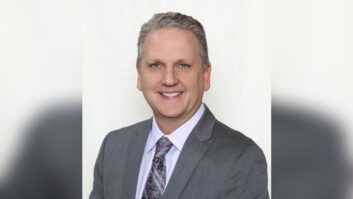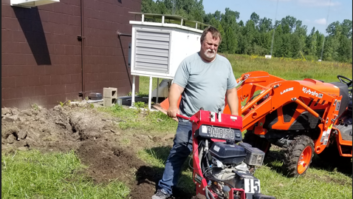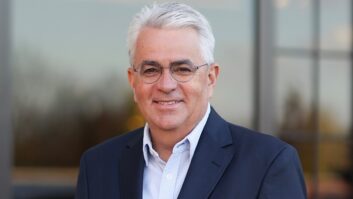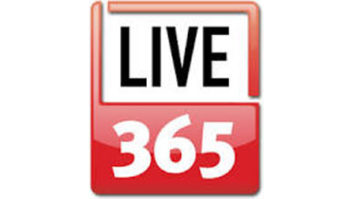
When I heard that Mike Callaghan plans to retire on Nov. 1, I reached out to ask him a bit more about his career.
Mike is chief engineer for Clear Channel station KIIS-FM in Los Angeles; he has held that role for a few months shy of 40 years.
“It has been an incredible amount of fun,” Mike told me by email. “We developed a tremendous amount of new technology over the years, and met new challenges with new ideas and answers. And we had managers of vision who gave us the tools and money to try new concepts.” (His current supervisor is Dennis Sloatman.)
I asked Mike how he got started in the business. He recalls taking the electronic curriculum at Pasadena City College right out of the Army, where his teachers included Donald K. Wilson.
“One of the classes was to prep you for the First Phone. If you passed the exam before the class ended, you got an automatic ‘A’ and didn’t have to come to class anymore. That made a lot of sense to me, so I studied like mad and passed the exam.
“Two weeks later, I found that KPPC(AM/FM) in Pasadena was looking for an engineer. I applied and was hired. It was a baptism by fire, believe me!” He says he left the station when new owners ran out of money to pay anyone. “From there I went to KWST(FM) in Hollywood. Beautiful music, and beautifully boring. That lasted one year. Then to KKDJ(FM), which became KIIS.”
Mike also worked as the transmitter engineer for station KEZY(FM) in Anaheim, and he continued as the chief for KPPC(AM) after it was spun off from the FM. Oh, and he taught broadcast technology and advanced circuit analysis for 12 years at Pasadena City College.
Among many projects he has been involved with in his career, he is most proud of the construction of the transmitter plant for KTLK(AM) in Industry, Calif., a 50 kW station with a five-tower DA-2 array. It was built in 56 days.
But there are many other memories. For instance he built studios early on — garage studios for DJs at KIIS and KEZY. ”One of the KIIS DJs came to work one night with a paper bag full of parts; he’d bought a console in a kit and wanted to know if I could have it finished by the time he got off the air. Also, the kit was for a mono console. Could I convert it to stereo while I was building it?”
Well, Mike continues, this DJ was short on time and of course he needed the studio working in a day. “So I borrowed a console from Mike Dorrough, and the studio got built in the nick of time. It was 3 a.m. when I got home from finishing it, and the phone was ringing. The talent had tightened up all the loose screws in the tape deck playback heads, and now it didn’t sound good at all. Could I come back and fix it?”
Every engineer I know in radio has a story like that.
He also recalls being part owner of an automated station in Camarillo. ”We had the girls at the answering service taking the meter readings, and I invented automatic rewinders for the reel-to-reel decks so we had infinite ‘walk-away’ time.”
I asked him to describe the hardest day he’d ever had as an engineer. He recalls one at KIIS-FM:
“One day three things happened: I changed the algorithm in the on-air processor, I put a new console on the air, and the station started playing a new single by Linkin Park called ‘My December.’ The single had been run through some sort of ‘finalizer’ processor at the label; the sample-rate converters in the new console weren’t working right; and the new algorithm was broken in the processor. There were three simultaneous things wrong, and I had no idea where to start looking. I just knew something was seriously wrong with the radio station! I learned never to change more than one thing at a time.”
What about favored gear? “I like Omnia products for processors because of the sound they produce,” he told me. “I avoid Apple products because the form is there, but I have trouble with the functions. That’s probably just me.”
Reflecting on what he’d say to others now, Mike Callaghan says: “Radio is not getting any easier. You have to stay current with technology and keep learning as much as possible. Retiring for me means staying active and continuing to learn.”
Part of our job here at Radio World is to celebrate the careers of engineers who have made a difference. Wish Mike well. Post a comment below and I’ll share it with him.
_





